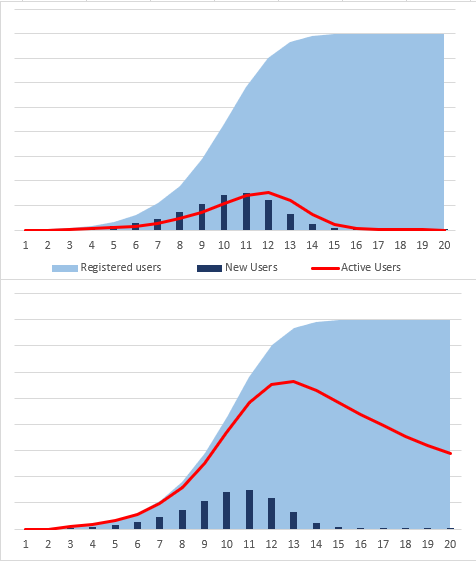- ARPDAUPosted 12 years ago
- What’s an impressive conversion rate? And other stats updatesPosted 12 years ago
- Your quick guide to metricsPosted 12 years ago
Raph Koster’s analysis of the ways to make a successful service game
Raph Koster, lead designer on Ultima Online and author of A Theory of Fun, has written a great post on Gamasutra setting out the key ways in which a service game can seek to keep its players playing. He argues – and I agree – that retention is the most important thing, because if you have the players, you can figure out a way to make money eventually.

The post analyses themes rather than mechanics. It tooks about “persistent profile investment” which can be anything from your level in Candy Crush to your character in World Of Warcraft, via your roster of fighters in Marvel Contest of Champions.
The paragraph on Player versus Player really grabbed my attention:
Player vs player competition
Pro: Other players are a free source of depth. This has also been a default tactic for literally centuries, so much so that it has merited being called the “orthogame,” almost the default historical format.
Con: Watch out for zero-sum play (one winner, one loser) causing players to be chased out. The typical user loses more often than they win, because the most skillful players tend to take up a disproportionate number of the wins. The result is that historically, most services based solely around this managed to only get 1/10th of the population of services based on cumulative character mechanics like RPGs. Today we’re seeing a melding of competitive play with other items on this list, such as content trickle, which hugely ameliorate this. There’s also the current common tactic of offering the game as a non-service and having a service only for the higher echelons of players.
The whole post is well worth a read.












